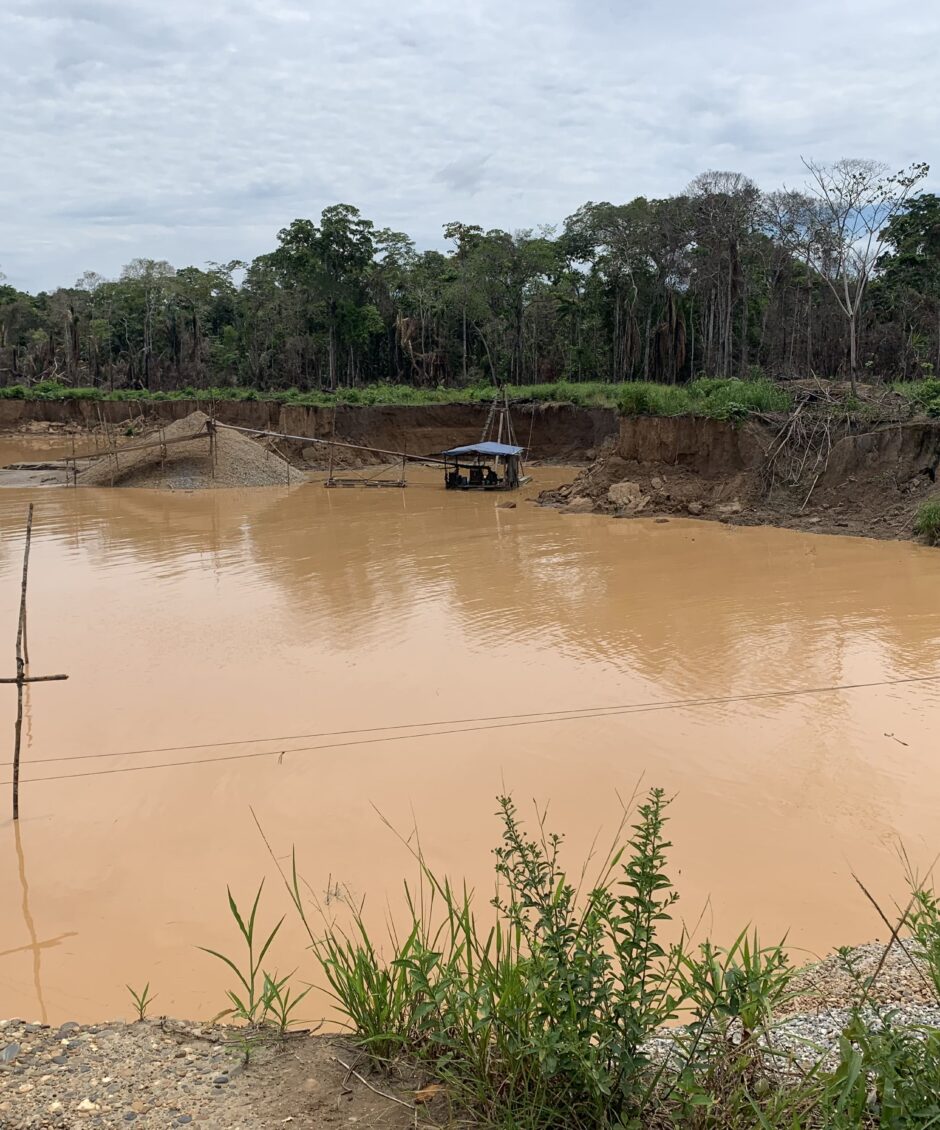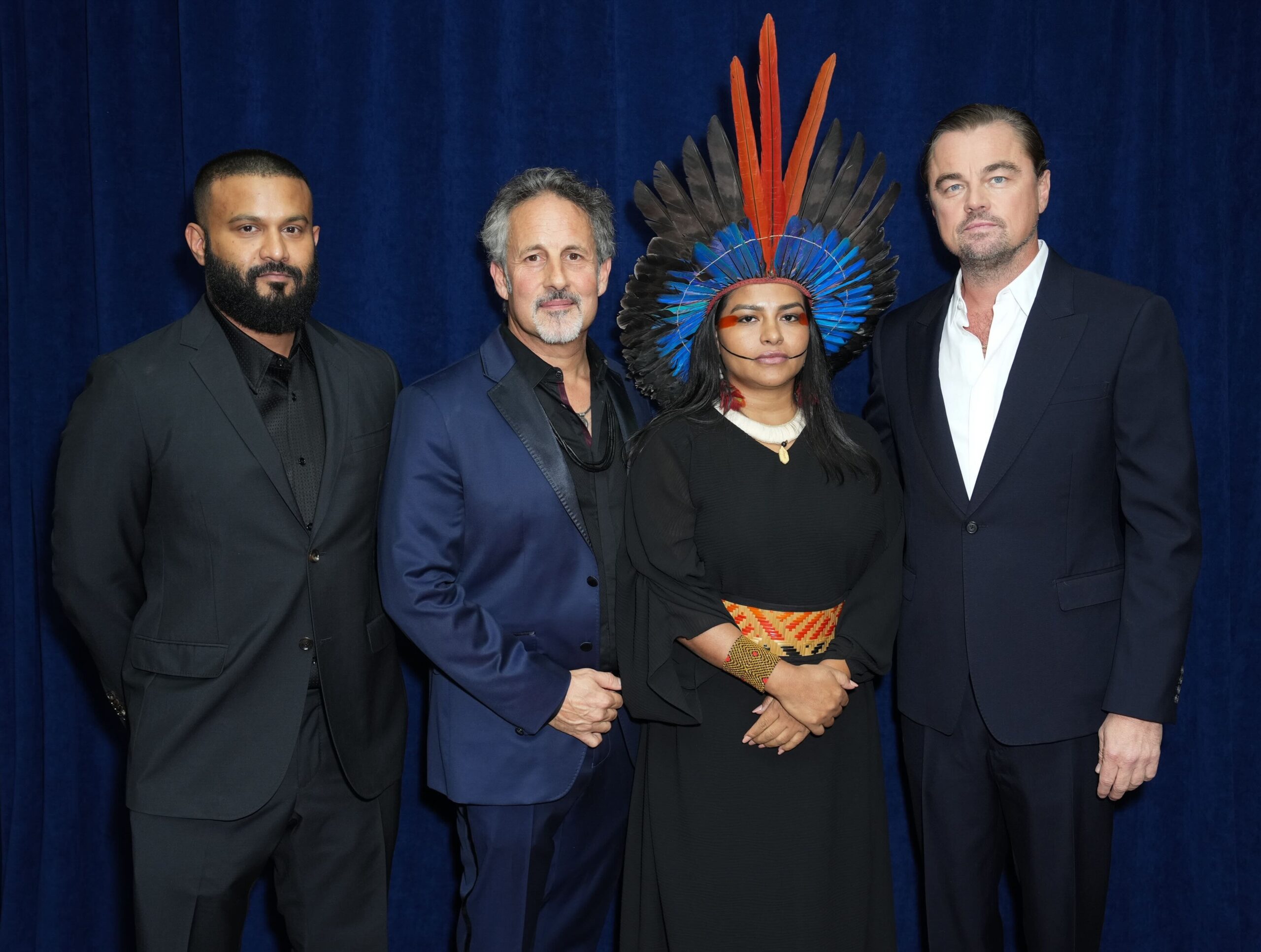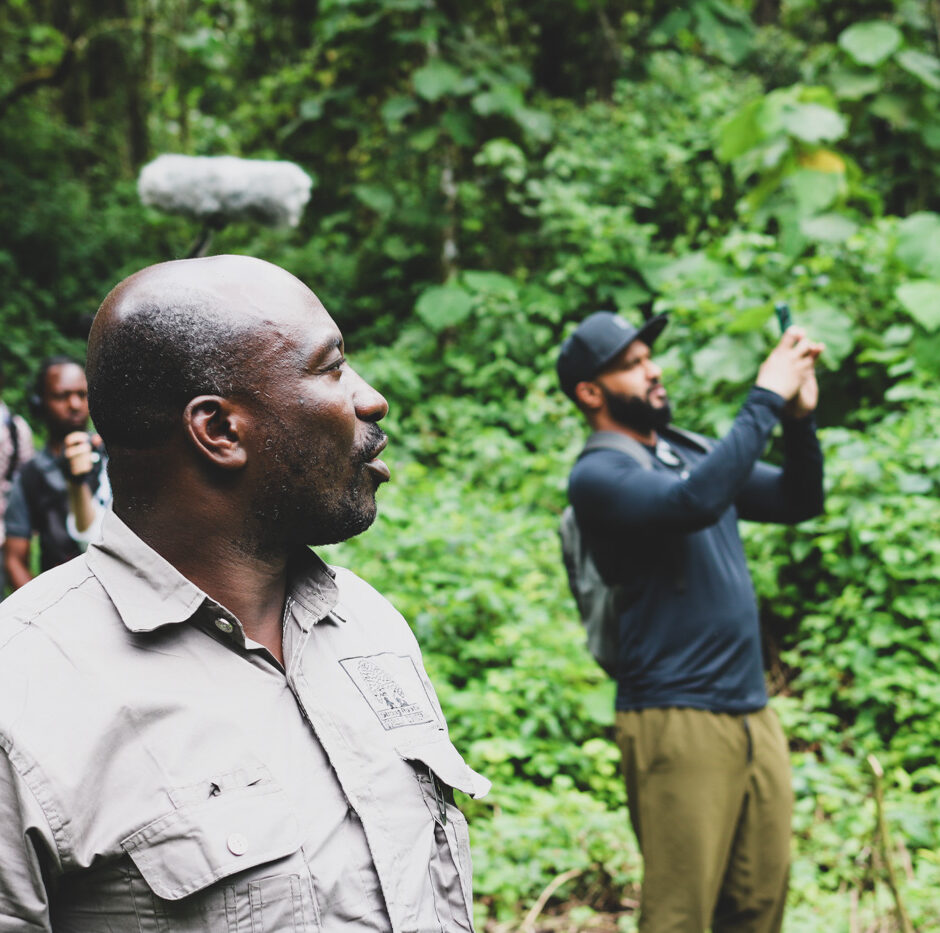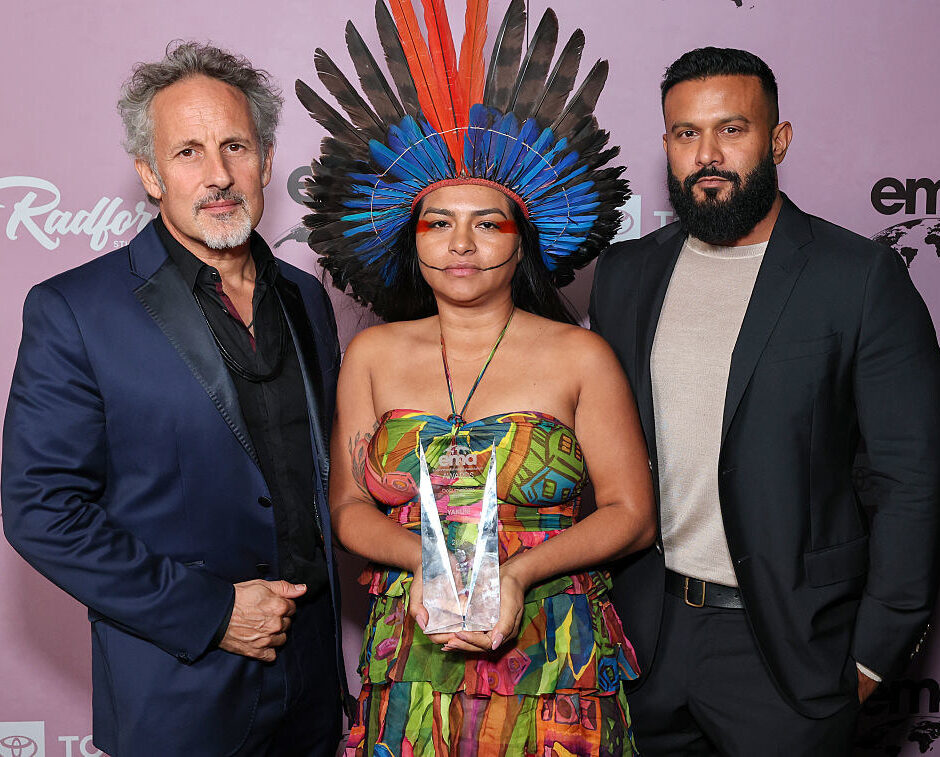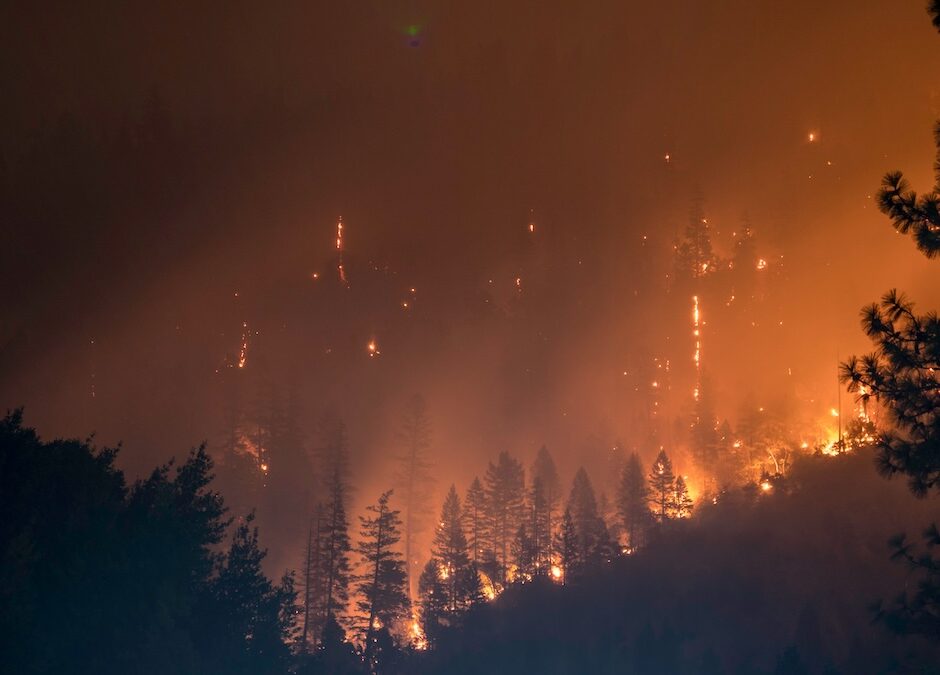How Land Titles Can Save the Congo Basin: The Inside Story of “The Corridor”
Article

“The Corridor” follows Dominique Bikaba’s mission to secure land titles for Indigenous communities, redefining the preservation of ancestral lands and the crucial Congo Basin rainforest.
Author
Jacky Habib
Topics
Dominique Bikaba knows one of the world’s most important forests like the back of his hand.
“I was born in the forest. I can survive in the forest for two months without food and water because I know everything is there,” said Bikaba, who is from the eastern Democratic Republic of Congo (DRC).
Bikaba, whose family belongs to the Bashi tribe, lived at the forest’s edge, now known as Kahuzi-Biega National Park. His family and countless other Indigenous Batwa, the “Pygmy people,” were evicted from their ancestral lands in the 1970s as the Congolese government and Western conservation organizations sought to protect the over 600,000-hectare forest.
“Seeing the community which has lost their language, their land, their culture — what remains to them?” Bikaba asked. His story is documented in Age of Union’s new film, The Corridor, which explores the Bashi people’s quest to reclaim their ancestral land after decades-long tension between them and conservation groups who expelled them from their land.

Expelling Indigenous People from Ancestral Lands
The Kahuzi-Biega National Park straddles the Congo Basin, which is primarily located in the DRC and spans six countries in Central Africa. It is the planet’s second-largest tropical rainforest after the Amazon and accounts for over a quarter of the world’s remaining tropical rainforest.
Protecting the park’s rich fauna, biodiversity, and great apes has been of interest to conservation groups — but according to Bikaba, their methods have lacked an appreciation of how Indigenous communities have been protecting the forest for centuries.
“Western conservation considers communities as enemies of nature,” Bikaba shared in the film. “Our beliefs [as Batwa people] consider humans, local communities, and Indigenous people to be part of nature — as gorillas are, as elephants are, as forests are — and for us, that’s conservation.”

For the Batwa people, who were the first inhabitants of the DRC, the forest has been central to their lives and livelihoods, serving as a place to practice traditions and worship while providing essential resources for survival. Since they can no longer live in the forest, their lives have completely changed — and this has led to widespread poverty.
“The power we have is based on that forest. If they [Indigenous people] lose that forest, they lose their culture, they lose their power, they lose their identity,” Bikaba said.

A Potential Solution: Land Titles
In 2014, the DRC passed legislation enabling communities to obtain land titles to their ancestral land. If granted land titles, communities could prove their ownership, live on the land freely, and continue protecting the forest from the inside for future generations.
The Corridor, which was screened during the Toronto International Film Festival in September 2023, follows the journey of Dominique Bikaba, founder of Strong Roots Congo, and Kerry Bowman, founder of the Forest Health Alliance, as they work to secure land titles for 21 communities. If successful, these titles would create one of the world’s first community-managed wildlife corridors.
“There’s a growing awareness that Indigenous and traditional people all over the world are the people that know the most about how to heal their forests,” Bowman said.
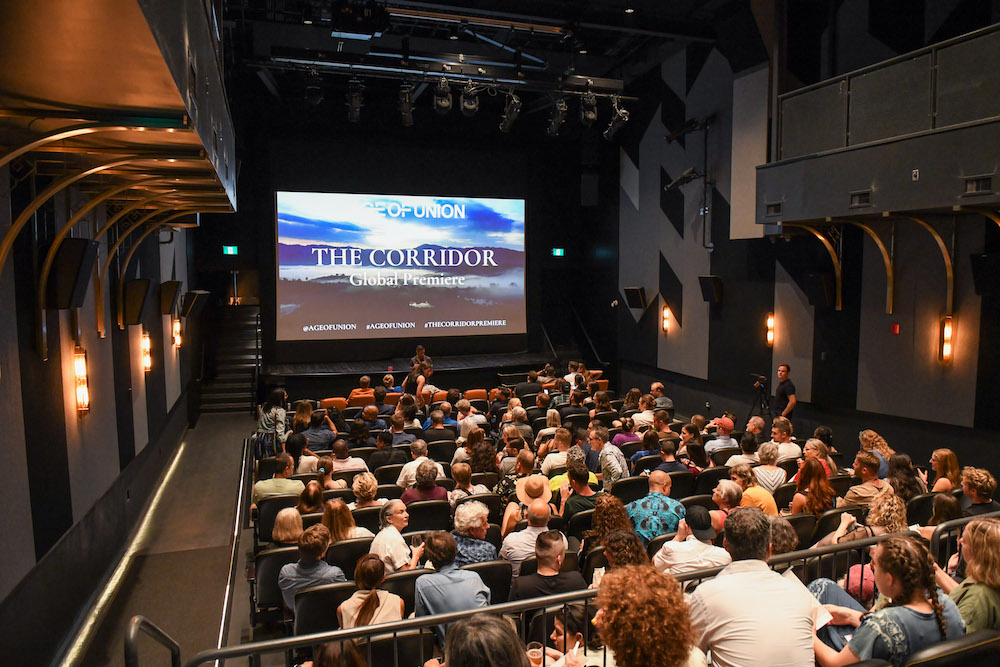
The 32-minute film documents the participatory process of land mapping, whereby members from each community attend a meeting to draw forest boundaries of areas they claim as their own. The chiefdoms and Strong Roots Congo staff then enter the forests to take coordinates of the boundaries to submit in their land title application. In 2022, after eight years of working with local communities, land title applications for the corridor were submitted to the Congolese government. The film documents the outcome of these applications.
Collaborative Efforts to Protect Biodiversity and Land Rights
“There’s a new way to approach conservation where communities and people are at the center of the solution instead of walling them off,” said Age of Union Founder Dax Dasilva.
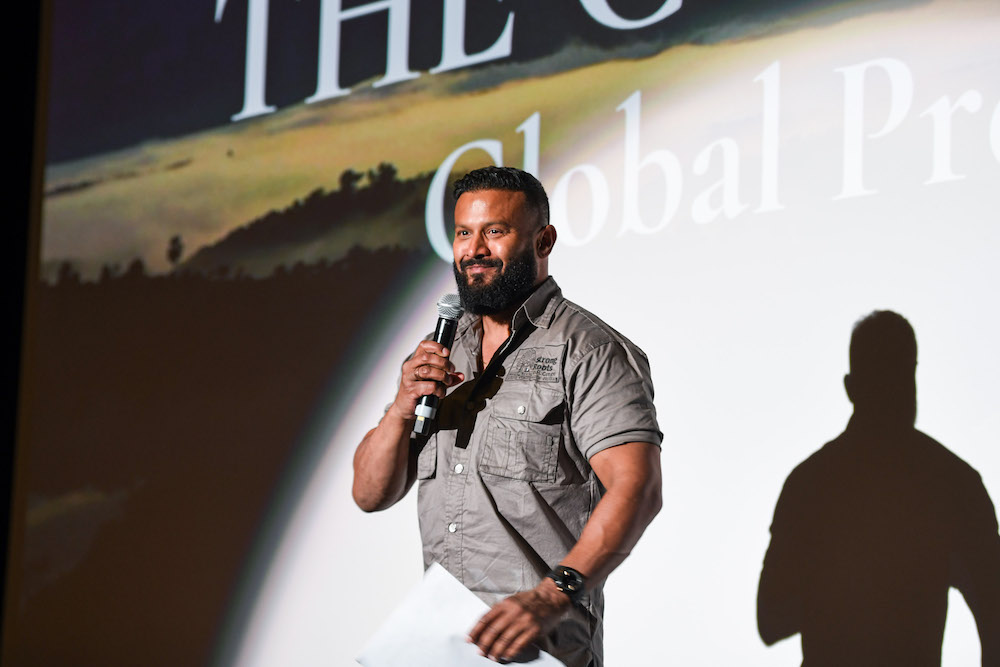
Since 2020, Age of Union has been working with Forest Health Alliance and Strong Roots Congo to protect the country’s great apes and create habitat connectivity for endangered species by building and conserving a wildlife corridor, which also acts as a climate shield.
Every year, 1.2 billion tons of carbon are stored in the Congo Basin, which helps slow global climate change by absorbing greenhouse gases.
“We’re no longer in an era of trying to raise awareness. We’re in a decade of action,” said Dasilva. “The fight against climate change starts here.”
Credits
Cover & Photos 1, 2, 3: Marc Lamy
Photos 4 & 5: George Pimentel
Topics
Article written by
Jacky Habib
Related
articles
Explainer, South America
In the Amazon, Gold Mining Leaves a Toxic Trail
Film
Environmentalist and Executive Producer Dax Dasilva Celebrates World Premiere of YANUNI at the 2025 Tribeca Festival
Africa, Film
Filming for Impact: How Age of Union’s Documentary The Corridor Inspires Change
Project
More articles
News
Age of Union Marks 4 Years of Global Conservation Wins As COP30 Commences in Brazil
News, Other
‘Echoes from Eden’ Book Tour Connects Readers to Urgent Stories of Conservation
Explainer, South America
In the Amazon, Gold Mining Leaves a Toxic Trail
America, Asia, News
What More Intense Wildfire Seasons Mean For People and the Planet
Film
